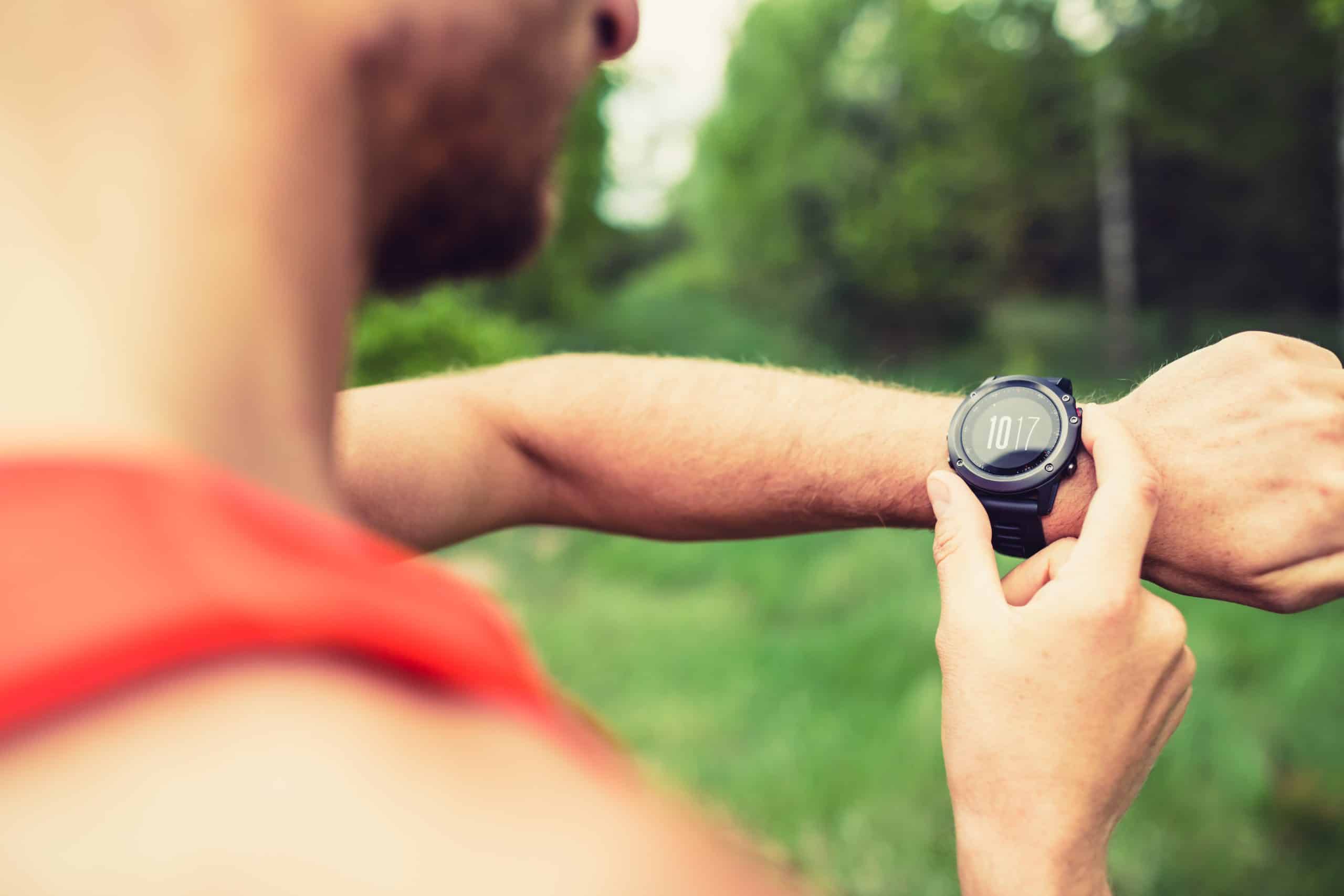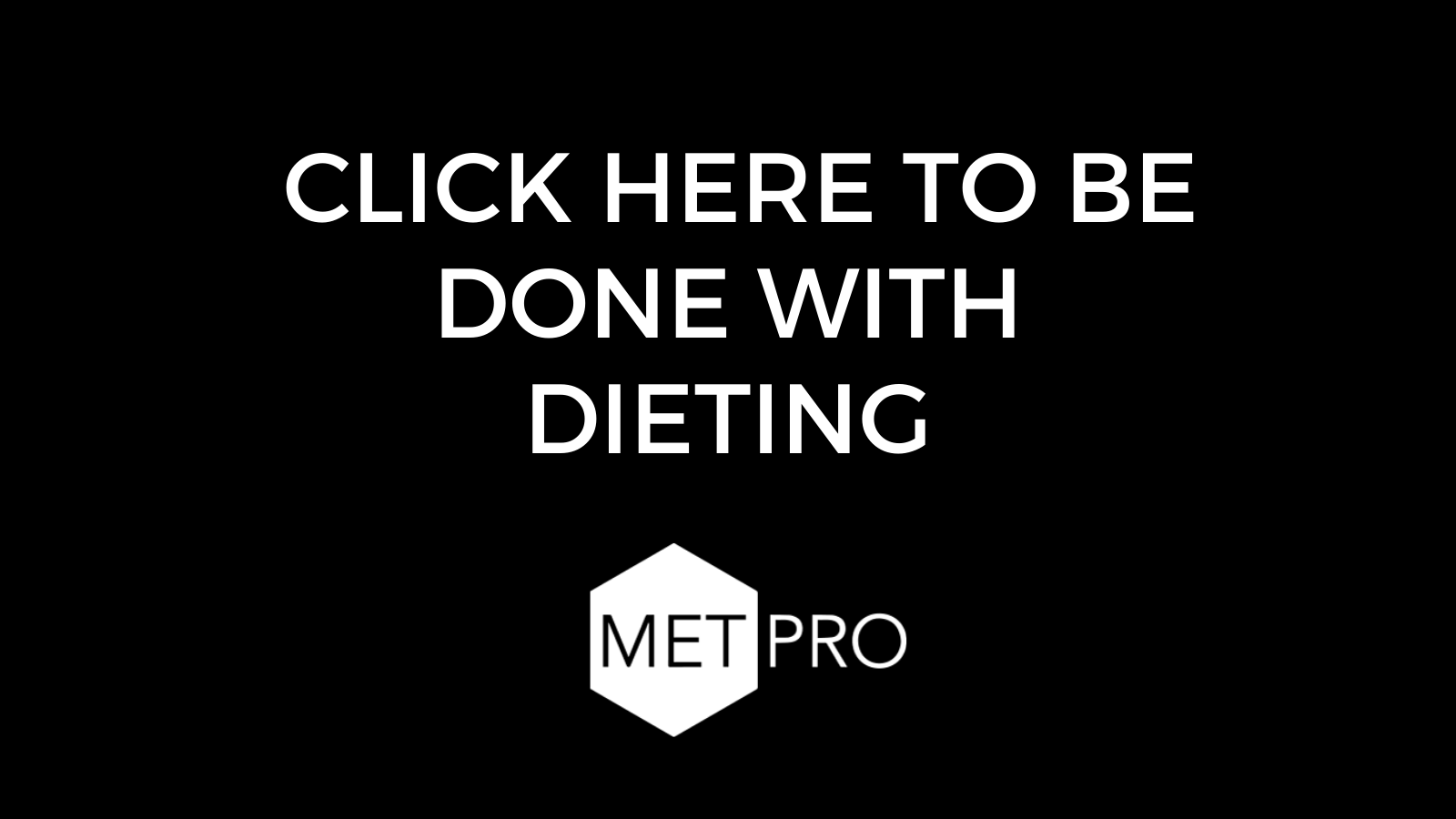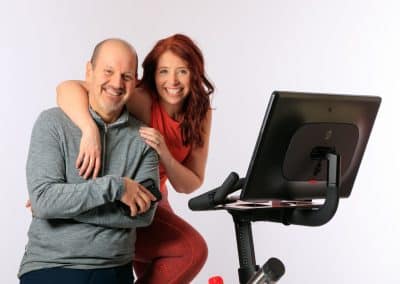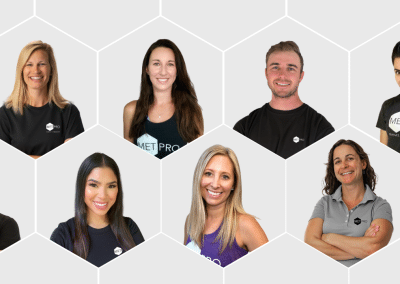Crystal O'Keefe: Welcome to the MetPro Method Podcast. I am your host, Crystal O'Keefe. Today I am joined by MetPro Coach Eric Willson, and we are discussing heart health. Eric, thank you so much for being here.
Eric Willson: Great to be here. Thanks for having me.
Crystal O'Keefe: Of course. I just want to start with the really, really basic questions.
How do we know if we have a healthy heart?
Eric Willson: That is the question, isn't it? So, I think a lot of that depends on, maybe you always need to get your doctor's advice on that one. I think common thing to keep in mind is your blood pressure. If your blood pressure's not in a normal range, it's running either high or low.
That might be a sign you need to get it checked out. If your heart rate is abnormally high or low, something to keep an eye on, excessive fatigue that really is unexplained, certainly would be an indicator something could be going wrong.
Crystal O'Keefe: I probably should have asked this before I jumped into heart questions, but, my understanding is you worked in a setting where heart health was discussed a lot.
Is that accurate?
Eric Willson: Yeah. I worked, 17 years in a cardiopulmonary rehab at the local hospital here.
Crystal O'Keefe: So, you probably picked up quite a bit of knowledge. I would say.
Eric Willson: I picked up everything I could anyways, I got to listen to a lot of brilliant minds, discuss many things. It certainly is a wonderful field.
My father had heart disease and passed away from it, and so it was something that I took real personal. To be interested in and try to not follow in those footsteps. Right?
Crystal O'Keefe: Yeah, absolutely. I totally understand that. And, and on that note, if you're thinking you have a healthy heart, how do you keep it that way?
What steps can you take to keep your heart healthy?
Eric Willson: That's a good question too. Things to keep your heart healthy. So, one of the things that I think a lot of people don't understand is that your heart is actually a muscle, and it's a muscle just like would be the muscle in your arm or in your legs or anywhere else in your body that can actually get stronger.
So, you think of an organ as something that doesn't necessarily get stronger, and the heart is not an organ, it is in fact a muscle. So, when we go and do exercises, we're actually increasing our heart's ability to pump blood more efficiently.
Crystal O'Keefe: Okay.
Eric Willson: Things that you do on the regular, going for walks, bike rides, swimming, golfing, cross country skiing, things that make you do a lot of consistent movement with very little stop and go- so maybe I should take golfing back there.
Those types of things tend to increase the strength of our heart, lungs, and circulatory system. It's good to be mindful that, you know, our guidelines are, we'd like to be doing those things, five, six days a week, 30 minutes at a time, at a moderate intensity.
Crystal O'Keefe: What's considered a moderate intensity?
Eric Willson: Yeah, I like that. So, I think a misconception about heart health is that you have to go out and you have to run as hard as you can until you're almost going to drop. And maybe you are even thinking about yaking or something like that, because you ran so much. That's overdoing it. You don't need to do that to strengthen your heart.
Crystal O'Keefe: Okay.
Eric Willson: So, to make your heart muscle stronger, what you really want to do is, you just want to use it in an elevated manner for a consistent period of time. So, if a person were to take their pulse before they started exercise, say I sat down for two minutes, just chilled out, took my pulse, let's say I get the number, 60.
Okay? So, what do I need to get it to when I'm exercising? I'd like to elevate it about 30 beats above rest.
Crystal O'Keefe: Okay.
Eric Willson: So, 90 doesn't seem like much and for most of us to get our heart rate to 90 is easy to do even if we had a resting rate of 60. That's sufficient enough to begin strengthening your heart, your lungs, your circulatory system.
Crystal O'Keefe: Okay?
Eric Willson: It teaches your vessels to vasodilate and or expand in size so that there's less pressure against the walls because it's a greater surface area, so blood can move more freely through them.
Crystal O'Keefe: Okay? So not only does it make the heart stronger, but it also makes our arteries, they actually open up too, so that it helps the blood flow more freely is what you're saying?
Eric Willson: Yeah, it decreases. So, if you took a person's blood pressure when they were sitting down, for say two minutes, and then you had them walk at a heart rate, that was roughly 25-30 beats above resting, have them come to a complete stop, sit for five minutes and you took their blood pressure again. I bet you would be lower the second time after the exercise than it would be before the exercise.
Because the circulatory system, so the vessels, the arteries, they all dilate, which means the pressure drops when they need to dilate. So, your arterial system learns to do that the more you exercise, the more it adapts to the exercise by increasing its ability to dilate.
Crystal O'Keefe: Fascinating. So I guess that's why over time as you exercise, your resting heart rate can go down.
Eric Willson: Right? You're increasing the efficiency of that motor. That is your heart muscle.
Crystal O'Keefe: Interesting. I mean, we see all these statistics all the time and all of our wearables, but we don't always think about putting two and two together of what that exactly means.
Eric Willson: It's pretty common. Well, I mean, the average heart beats about a hundred thousand times per day on average.
Crystal O'Keefe: Crazy. Yeah.
Eric Willson: So, think about that over the span of your life. That's a lot of beats.
Crystal O'Keefe: Yeah.
Eric Willson: If you can gain efficiency on your heart muscle and it beats less times per day, multiplied by the span of your life, it’s less likely to wear it out. Right.
Crystal O'Keefe: Absolutely. That's a very good point. So, does nutrition play a role in here as well?
Eric Willson: Yeah, nutrition plays a role in the whole inflammatory process. So, part of what happens when people develop heart disease is, sometimes what they have is actually arterial disease. Not necessarily disease of the heart muscle, but a disease of the arteries leading to it. So, eating foods that are more mono and polyunsaturated fats.
So, like what? Nuts, seeds, avocados, olive oil, fish, all those types of things, actually help lower your overall cholesterol and increase the good versus the bad lipids in your blood system.
Crystal O'Keefe: Okay. Do you know, is there emphasis that we should put more on movement or nutrition or are they equal?
Eric Willson: Yeah, that's the big question I've heard asked so many times and I get a sense from everything that I've seen that, you know, if you think about it- Okay, so nutrition is one whole side of the aspect. When you look at what are the risk factors for heart disease, nutrition is certainly part of the risk factors because if you're eating a diet, high in saturated fats, trans fats, high in cholesterol.
All those things we know can contribute to heart disease. Okay, so then the flip side is we also know that the body is built to move and the inactive body tends to be a body that breaks down faster and is more prone to disease and/or a lower immune system. We also know that movement is what strengthens that muscle that is your heart and helps increase the pliability, if you will, or elasticity of your arterial system. So, exercise certainly contributes, but so does nutrition and they contribute in different ways. So that's why the two of them are both so highly recommended as modifiable risk factors. You know, they'll say there's seven modifiable risk factors for heart disease.
Well, those are modifiable because we can choose to do them or not.
Crystal O'Keefe: Right. Okay. You can change your eating habits. You can change your exercise habits or your movement habits. Those are all things that you can do.
What about when it comes to movement? How do you know that you have done enough movement to keep your heart healthy?
Eric Willson: Yeah. So, the person who gets the most benefit from exercise across the board is the person who goes from doing nothing to doing something. So, I can take people that are super athletes, people that are kind of athletes, people that barely move, and people that don't move.
And if I get all of them moving more, the people that don't move make the biggest bang for the buck immediately because they went from doing nothing to doing something. Their body loves to adapt. The body's always adapting to learn the path of least efficiency so they get big gains quick.
Yeah. Someone who's been exercising for a long time and very strenuously, it's harder to get big gains for that person because they've already reaped so many of the big gains that now it's minute fine little gains that cumulatively still add up and make a difference, but you won't see them concrete happening on a regular clip. There'll be little things you'll notice over time.
Like, for example, that you outlive all your friends.
Crystal O'Keefe: That's a good one, to live a long time.
Eric Willson: Many people I have known that I crossed paths with were told by their physicians that, “Hey, the reason you're still around, even though your heart is shot, is because you've been so active and athletic in your life that you know you've got a super heart, you can go longer than the rest.”
Crystal O'Keefe: Wow. Well, so conversely, is there such a thing as too much movement for your heart? Like, can you be too hard on it? Especially if you're just starting out with exercise.
Eric Willson: Yeah. So how hard is too hard? Depends on the person.
Crystal O'Keefe: Sure.
Eric Willson: It's really hard to like, so when I was in school, it was always trying to come up with how do you gauge that?
What's too hard for each person because, our perceptions are different also. Right?
Crystal O'Keefe: Absolutely.
Eric Willson: So, the chart that I was taught to use was actually a perceived exertion chart, and that's where, you know, you actually ask people, “Hey, based on this chart that gives you descriptions of your breathing, how hard are you working?”
And so, I think you use your breathing as a guide. If you can't breathe and you're exercising, you probably need to slow down because you're not exercising efficiently anyways. You're not getting oxygen to all your muscles, so they're not doing their job like they can and you won't reap all the benefits.
Crystal O'Keefe: Yeah.
Eric Willson: Versus. If I could sing a song to you while I'm exercising, I'm probably not going hard enough. I probably need to pick up the pace a little bit. I should at least be short of breath if I'm trying to sing a song too.
Crystal O'Keefe: Right, right, right. So even though you want to sing along while you work out, you’ve got to maybe sing it in your head because you're working so hard.
Eric Willson: Or maybe you get out a verse or two and you stop and there you go again. So, I would say, use your breath as a guide and think to yourself that, you know, I want to be short enough of breath that I know I'm working, but I also don't want to be so short of breath that I couldn't answer a question.
Crystal O'Keefe: Yeah. Yeah, I, uh, I once had an instructor, it was a Peloton instructor, and they said, we can still talk, but you don't want to answer anymore.
Eric Willson: Right. Kudos to that.
Crystal O'Keefe: Yeah. I always liked that explanation.
Eric Willson: Yes.
Crystal O'Keefe: What about things that we might need to think about, that we should avoid to keep our heart healthy.
Is it as simple as, don't eat fat? Like is it that, is there something like just a blanket statement that we can do?
Eric Willson: So, there's several “don'ts”. I mean, if you went and you saw a cardiologist and said, “Hey Doc, I smoke,” your doc's going to tell you, “All right, so smoking's the number one risk factor for heart disease.”
Crystal O'Keefe: Doesn't it like harden the arteries too? My dad was a smoker for years, it one of the only reasons I know he had it, and he had a heart attack and then we found out he had peripheral arterial disease also. So that was like, that affected where they could put the stent and the whole thing. And yeah, I learned. More that I wanted to know.
Eric Willson: Yeah. And that's, and that's a common side effect for a long term smoker, you know? It's that common assault on your arteries that adds up over time. It's really the artery walls. It's called your endothelium. The lining inside your arteries gets assaulted so many times that it begins to harden the elasticity.
Crystal O'Keefe: I think it's fascinating that we talk so much about heart health, but I'm realizing through this conversation, it's not just your heart. It's also your entire arterial system. And I don't know that everybody even necessarily knows that.
I knew smoking was bad for you. I've always known that. But I didn't realize that one of the effects was that it could affect the lining in your arteries, and that of course can cause other problems because if your arteries aren't elastic. The way you were explaining a while ago, that vasodilation thing doesn't happen.
Eric Willson: Right.
Crystal O'Keefe: I have all these medical terms.
Eric Willson: Yes. Yes…
Crystal O'Keefe: So, okay. Smoking. That's one we should avoid. What else?
Eric Willson: I would say things to avoid, obviously obesity, you know, the more overweight that a person is, the more pressure it puts on your organs in general. And so, for every 20 pounds a person gains for every 20 pounds a person loses. You can expect a systolic difference of about 10 points on the top and bottom number.
Crystal O'Keefe: Really?
Eric Willson: So, what I said was, if you lost 20 pounds, I would expect your blood pressure to drop 10 points both systolically and diastolically.
Crystal O'Keefe: Wow.
Eric Willson: That's a common factor. A lot of people don't recognize that them being overweight is what's giving them high blood pressure. And so, if they can lose some weight, their blood pressure drops and maybe they don't even have to take medications or maybe their medications get reduced, or even the doc says, you know, you could come off those now.
And that's just one of the advantages of not carrying around so much extra weight.
Crystal O'Keefe: Wow.
Eric Willson: If you think about how hard it is on your heart or if you're not quite sure, go put a backpack on with 50 pounds on it and try to walk around all day carrying an extra 50 pounds.
Crystal O'Keefe: No, thank you.
Eric Willson: It's hard on every part of your body, but your heart, you'll feel it at the end of the day. You'll be more tired.
Crystal O'Keefe: Yeah, that's a really good point. You do feel that if you do backpacking, you feel it all over your ankles, your knees, everything.
Eric Willson: Stress is huge. I think a lot of people don't recognize that stress is enormous as far as its ability to inflict damage on our heart muscle. So, a person that's under chronic stress, if you will, has a, I don't know the statistic, but they have a much higher incidence of a heart issue, a heart attack, or a stroke or something like that happen because that chronic stress leaves their blood pressure in a chronically elevated state.
And so, if your body is never able to relax, if you will, if that blood pressure is chronically elevated, essentially, you're a ticking time bomb, if you will.
Crystal O'Keefe: Wow.
Eric Willson: So, one of the things that I saw when I was in the hospital was that there was a large population of people that had heart events, including major heart attacks or surgeries that were all induced by an extremely high stress lifestyle, but no other real risk factors to speak of, just stress.
And you start to realize that, okay, so stress in itself is a giant risk factor, if not managed properly. What's a way to manage stress?
Crystal O'Keefe: Exercise.
Eric Willson: Exercise. Because why? Because our brain releases endorphins and other feel-good hormones that make us happy.
Crystal O'Keefe: Yeah. And our blood pressure goes down.
Eric Willson: And our blood pressure goes down. Cool. Huh?
Crystal O'Keefe: Yeah, it is. And so I wonder if things like, meditation and stuff like that can help with keeping your blood pressure down, in addition to exercise, not saying don't exercise.
Eric Willson: It's proven. It's actually proven. So, a nurse that I worked with used to say, let me show you guys a science experiment.
And he'd say, I'm going to show you how I can make your blood pressure go up 20 points real quick, and I can show you how I can make it drop real quick. And that's an example of how reactive we are and how our blood pressure reacts to our reactions. Right. So he would just pick a random person in the room and say, I need you to come up here in front of everyone in the room, which is maybe 30 people, not a ton.
And I need you to solve this math problem.
Crystal O'Keefe: Oh yeah, that'll do it.
Eric Willson: Now, take that person's blood pressure as soon as you tell 'em that. It'll be through the roof. For most people, unless they're like a math teacher or something, because that's a stressful thing, being in front of people and solving a problem and not wanting to get it wrong.
And our compensatory response is an elevated blood pressure. Stress. Vice versa, I could take that same person, sit 'em in a chair and have them do a breathing exercise that I would call diaphragmatic breathing, which is meditative breathing practice. And you'll watch their blood pressure go down rapidly.
I take it before they breathe like that and after, and it'll be down most every time unless you just can't clear your mind or something like that's going on.
Crystal O'Keefe: Wow. What else? Is there anything else we should avoid? These are great tips.
Eric Willson: Well, I would say, you know, remember alcohol in excess.
Crystal O'Keefe: Ah, okay.
Eric Willson: Alcohol in our body makes us feel the way we do because it's a reaction to the fact that we put poison in our body.
Crystal O'Keefe: Okay.
Eric Willson: And the poison in our body is what gives us that funny feeling. So, alcohol when taken in excess actually can lead to a lot of different diseases. But one of them that, that I know of is what's actually called holiday heart syndrome.
And it's where a person's heart when they drink. actually, it loses contractile strength and it begins to happen at a rapidly decreasing pace, and it's really not recoverable once they get to that point. Know this in a nutshell, every time we drink alcohol, we are not stronger, even though we think we are.
Our heart becomes weaker when we drink alcohol until the alcohol leaves our system. And we have a bigger propensity to develop arrhythmias from our heart when drinking alcohol than when not due to electrolyte imbalance and dehydration possibilities.
Crystal O'Keefe: Wow. Well, that's, uh, sobering. Haha pun.
Eric Willson: And that's why they tell you to moderate what you drink. You know, don't go out and drink the bottle of wine. Have a glass, it can be done.
Crystal O'Keefe: Right.
Eric Willson: Your body can process and handle that if done in moderation.
Crystal O'Keefe: So, not necessarily you need to avoid all alcohol, but you do want to avoid drinking to excess.
Eric Willson: I would say if you're thinking about your overall health, that would be a wise idea.
Crystal O'Keefe: That makes, yeah, for a lot of reasons. Absolutely.
Eric Willson: Yes.
Crystal O'Keefe: So do you think being a MetPro coach and knowing all that you know about heart health, do you feel like MetPro complements the goal of keeping your heart healthy?
Eric Willson: I think the neat thing about how MetPro and heart health coincide, to me, is that it's encouraging you to eat a diet that is clean foods, meaning foods that are very much unprocessed, are natural, are high in antioxidants and a lot of good fibrous foods. Lots of fruits, vegetables, less dairy, if you will, not that I'm opposed to it, but we all know that dairy is what's high in saturated fat and high amounts of saturated fat are linked to heart disease.
So, if somebody's eating cheese every day, look, I've got some other options here through MetPro to get you off the everyday cheese and let's make it every other day and watch your cholesterol drop a little too. And so it's teaching people that instead of the cheese, I can go have some almonds and avocado and it's just as fulfilling, but maybe no one ever posed that to you before.
And recognizing that, okay, if I want to eat foods that are healthy for my body, most of them are going to be foods that don't really come in a package. These are foods that you are natural, if you will, or grown, or you can pick them or, I'm not sure the word I'm looking for.
Crystal O'Keefe: I think you said processed earlier and I think that's perfect. There's not a whole bunch of things that were added to them. It's just whatever it is.
Eric Willson: Correct. That's what I'm getting at.
Crystal O'Keefe: Well, what did we miss? Is there anything else that people should know about keeping their heart healthy?
Eric Willson: Geez. Let's think about this. Anything else people should know? Just make a commitment to move. I think the big thing is if you make a commitment to move every day for about 30 minutes, most days of the week, you're really doing your body a good thing. And it all starts with your heart. Because if your heart is the engine that drives everything and it begins to fail, everything else in your body won't work, right?
I mean, it goes to, your vision won't be as well. Your breathing won't be as well. Your circulation won't be as well. Your immune system drops. I mean, it just goes on to this long list of things that are all related back to your heart. There's a really neat YouTube clip out there called 23 and a Half Hours.
And it basically explains to you that if there's 24 hours in a day. I'm telling you that you can do what you want with 23 and a half hours. Only 30 minutes of it that needs to be done using exercise, right? So, 30 minutes a day, you get 23 and a half hours to yourself. Give me 30 minutes a day of some type of formal physical activity.
Doesn't have to be exercise. Could be a walk, could be a leisurely bike. Park further away from wherever you're going and make sure you walk there and back, you know, take the stairs instead of the elevator. It all adds up.
Crystal O'Keefe: It does. It does. And I think that's a really important distinction because I do think that sometimes people get in their heads, oh, I have to exercise.
And movement, it doesn't have to be defined that way. It can even be play, it can be, there's so many video games you can play with your kids now that, that are movement based, we have a VR game that they, it's, I can't remember what it is, something beat, but you have to like hit the little things as they're flying at you, on the beat and it's definitely something that's going to make you move and get your heart rate up. And so it doesn't have to be considered exercise if you don't want it to be. I love it.
Crystal O'Keefe: Yeah, it's a lot of fun.
Eric Willson: Yeah, and that's great because again, you're having a good time, you're getting physical activity, you forget that you're even getting exercise in and you're doing yourself twofold.
You know? It helps your mood, it helps you sleep better at night, helps your circulation, helps your appetite. It helps your vision, helps your skin, it goes on and on.
Crystal O'Keefe: Well, all excellent points. Is there anything else you wanted to add before I let you go? Tell people where to find you?
Eric Willson: Come see me at metPro.co
Crystal O'Keefe: Well, Eric, thank you so much for your time today. I really appreciate it.
Eric Willson: You bet. Thank you.
Crystal O'Keefe: Listeners, that's all for this week. You can find all the MetPro Method episodes anywhere you get podcasts, or you can go to metpro.co/podcast. Please be sure to follow the show and rate and review that lets other people know what they can expect from the show.
You can also learn more about MetPro@metpro.co. I'm your host, Crystal O'Keefe, and I'll be back next week. Until then, remember, consistency is key.






